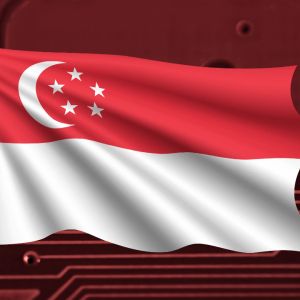
Singapore’s court pushed back the hearing in its probe of three men tied to the alleged illegal transfer of Nvidia AI chips to China on Friday, setting the next date for August 22. Local media have linked the trio, Singaporeans Aaron Woon Guo Jie, 41, and Alan Wei Zhaolun, 49, alongside 51-year-old Chinese national Li Ming, to shipments destined for DeepSeek , a Chinese AI outfit. Prosecutors in Singapore want more time to scrutinize the documents The three were originally charged with fraud after authorities said they lied to unnamed server vendors about who would ultimately use the hardware. According to prosecutors, those false claims covered purchases made throughout 2023 and into 2024. The men stand accused of deliberately misrepresenting end users, a move Singapore courts treat very seriously, given the risk to international security. At Friday’s brief hearing, prosecutors told the court they need extra time to comb through fresh documents and to get replies from overseas entities involved in the transactions. Those responses are crucial, they said, to determine exactly how the chips were rerouted after leaving Singapore. According to Reuters , Dell Technologies and Super Micro Computer had supplied the servers to Singapore-based firms, which then shipped them on, reportedly to Malaysia, though their status as the final destination remains unclear. Deputy public prosecutor Phoebe Tan said that the police had been actively pursuing leads and carrying out further investigations from the very start. Since the last hearing on May 2, Tan said, the police had 10 follow-up interviews with persons of interest and the accused trio. According to Channel News Asia , Tan also revealed that police initiated contact with relevant agencies, including foreign ones, and are currently waiting for responses. Police have also examined 35 out of 53 electronic devices, while the rest are pending data extraction. Organized networks use Singapore as their layover to China Singapore’s Home Affairs Minister K. Shanmugam revealed in March that officials, acting on an anonymous tip-off, confirmed some of the servers likely carried Nvidia chips banned for export to China since 2022 over military-use fears. A senior US official separately reported that DeepSeek is assisting China’s military and intelligence operations. The local case is but one piece of a wider law-enforcement operation targeting 22 individuals and companies for similar deceptions, authorities say. They suspect an organized network has been leveraging Singapore as a route to funnel advanced AI processors into China, undermining export controls designed to curb Beijing’s defence applications. In Nvidia’s latest fiscal filing, Singapore ranks as the chipmaker’s second-largest market after the United States, accounting for 18% of its revenues. Yet, actual shipments to the city-state made up under 2% of total sales, since many customers use Singapore merely as an invoicing hub for dispatches elsewhere. The US clampdown, introduced in 2022, bars export of Nvidia’s top-end AI accelerators to China over national security issues. Since then, global watchdogs have warned of illicit trade routes, with some middlemen exploiting neutral jurisdictions to disguise end-user identities. The outcome of the case, whose next hearing is on August 22, could signal how far Singapore will go to deter chip-smuggling networks, and whether other regional hubs might tighten their own oversight to prevent similar schemes. Cryptopolitan Academy: Want to grow your money in 2025? Learn how to do it with DeFi in our upcoming webclass. Save Your Spot
